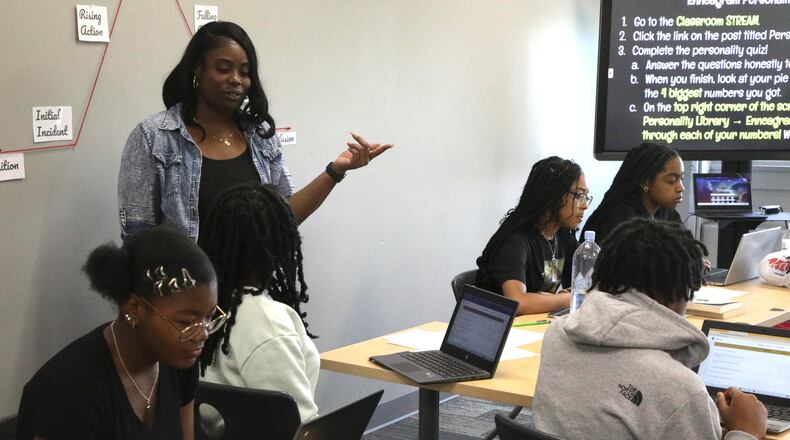“We promise that if you show up and partner with us that your kid will be ready when they want to go to college,” said Katy Jo Bull, DECA school director. “It’s incumbent upon us to make sure that that happens.”
The high school, located at the Fitz Center on the University of Dayton campus, opened in 2003. Since its opening, DECA split off from Dayton Public School in 2007 due to budget constraints and added an elementary school off of Homewood Avenue and a middle school off Patterson Boulevard.
Close to 1,300 Dayton students attend the three schools.
DECA superintendent Dave Taylor said 100% of DECA’s students get into college, though only about 90% end up on a college campus their first year. About 54% of their students, who are pulled exclusively from Dayton schools, graduate from college, Taylor said, compared to between 10% and 15% of similar students.
About 100 slots are open per grade level. Because the charter is a public charter school, the school can’t pick the students accepted. But Taylor said they do end up picking names out of a hat when there are more applications than spots.
According to Ohio Department of Education data, about 70% of DECA’s students are economically disadvantaged and more than 90% are Black. State report card data shows those two demographic groups, as a whole, struggle more academically than their peers.
But Bull said the one thing that unites the families is strong support for the students.
“Our families are really special. They work as hard as the kids and the teachers do to make it happen,” Bull said. “And those three have to really be working in tandem.”
If DECA families need help, or have a sudden calamity that affects their kid, the school can help, Taylor said, usually relying on donors to do so.
DECA’s high school got a “B” on the most recent state report card, but despite the school’s resources and the strong family support, the district’s elementary school in the 2018-2019 school year had a “D” rating.
A “D” was the same grade several DPS elementary schools got in 2018-2019.
Taylor said for a school serving kids who are historically marginalized and underrepresented in higher education, he believes DECA does a good job.
“The reality is, the report cards are very closely tied to the income levels of the families that they serve,” Taylor said.
He said anyone evaluating them should take other factors into account: DECA graduates have a proven track record of succeeding in college and the workforce, and the charter school model doesn’t get funding from property taxes as traditional public schools do.
“The longer the students are with us, the higher the grade is they’re with us, the more we see them outpace the kids in our in our suburban schools,” Taylor said.
About the Author



